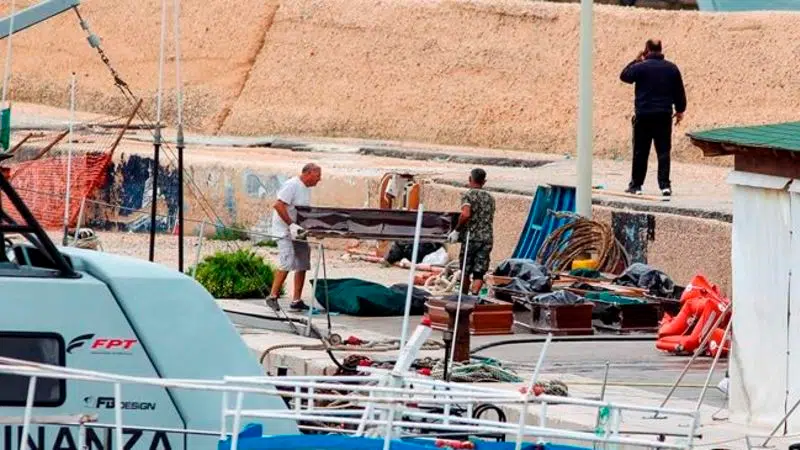
New deadly migrant shipwreck hardens calls to revamp rescues
MILAN — The deaths of at least 13 people early Monday on an overloaded migrant boat that capsized near the Italian island of Lampedusa have galvanized calls to shut down smuggler routes and revamp search-and-rescue efforts in the deadly central Mediterranean Sea.
The Italian coast guard said one of its vessels was about to begin the rescue about six nautical miles Italy’s southernmost island when the boat capsized. Survivors told the U.N. refugee agency that the migrants moved to one side of their unseaworthy vessel when they saw the rescue ship, capsizing it.
Twenty-two people were plucked from the sea and brought to safety. But 13, all women, were pulled dead from the water, and the search was continuing for 15 still missing, including an unknown number of children.
The boat had departed Tunisia, with about 50 people on board, mostly west Africans and Tunisians.

